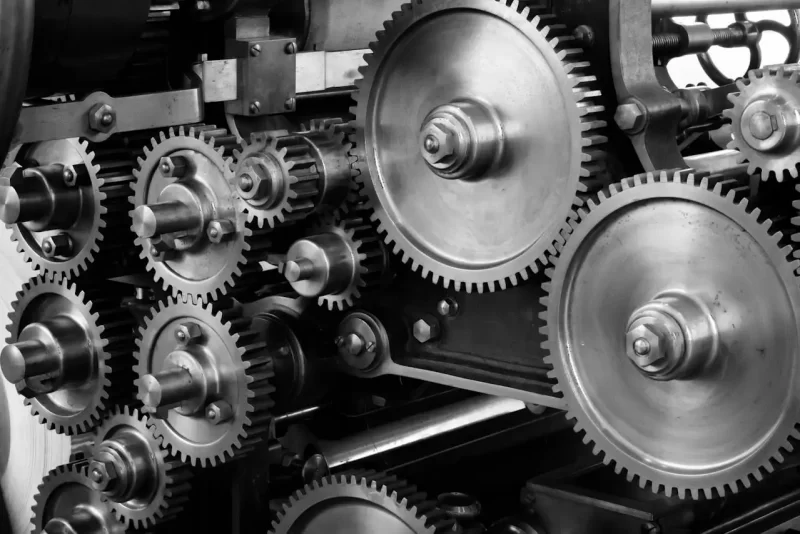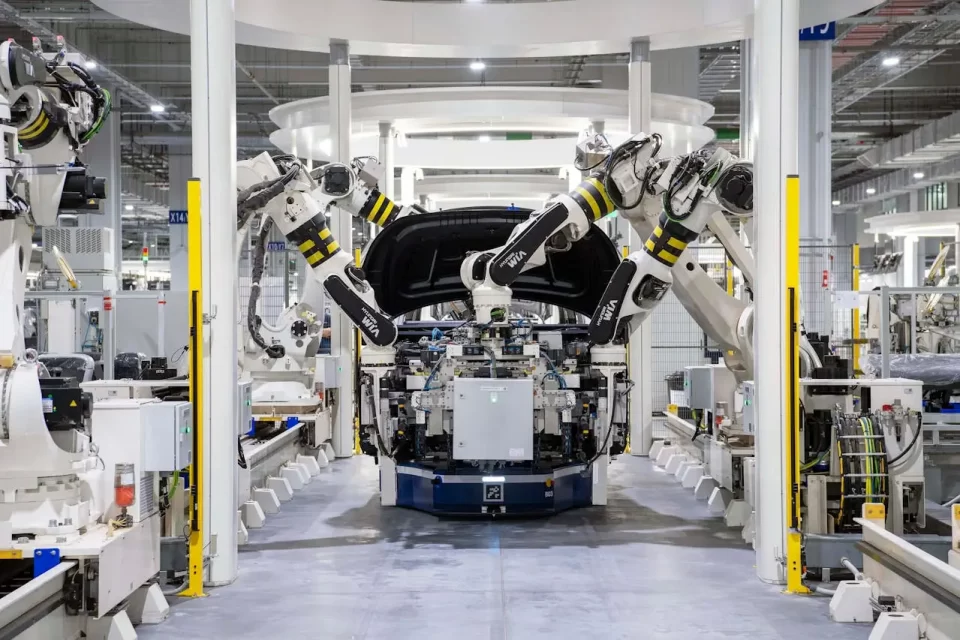In more ways than one, automation has become the cornerstone of modern business. It has allowed virtually every type of industry to streamline their processes – whether that be in a small, but impactful way, or by offering a totally transformative change. Of course, the landscape and scope of this sort of technology continue to increase every year, so much so that it can be difficult to keep up with all the latest advancements.
If you’re a business owner yourself or someone looking to start a new venture into your area of expertise, it’s important to keep up with trends not only relating to your own sector, but also those around you. In this article, you’ll learn about the latest advancements in automation, and how you may be able to use them to take your business to the next level.
Healthcare: Automation as a New Frontier for Enhancing Patient Care
Healthcare is one of the most important industries to focus on when it comes to how technology can help people – and with regards to automation, there is an exciting array of topics to discuss.
One of the most intriguing is robotic surgery. While this might sound like something out of a horror movie to many, the truth is that surgeries have been using robotic-assisted technology for years: robots such as the da Vinci system have displayed a high degree of efficacy in their ability to carry out an unparalleled level of precision, working alongside surgeons to perform the most complex of procedures with absolute minimal invasiveness. These robots have been shown to both improve the time and efficiency of an operation as well as the overall outcomes.
Similarly, radiology is another area that has benefited greatly from the power of automation.
Modern CT scanners, such as the Canon Aquillion models, for example, utilize the power of artificial intelligence (AI) and deep learning algorithms: this new tech both increases the resolution of imaging and reduces the occurrence of artifacts, and it also reduces the amount of time a patient must stay inside the machine – this carries over to a staggering reduction in effective radiation dose.
Of course, automation isn’t just relevant in these often life-altering arenas – it also has great utility when it comes to scenarios like remote patient monitoring. For many medical evaluations that would have originally necessitated an overnight stay, hospitals can now provide convenient, easy-to-use, low-footprint technology for the patient to wear at home, such as heart rate monitoring, oxygen monitoring, and other vital tracking. This greatly increases patient comfort and reduces the costs for the hospital.
Humans will always be at the forefront of continued developments in medicine and pathology, but as the industry continues to embrace modern automation, the field truly opens up to boundless opportunity.
Retail: Honing in on Consumer Wants and Needs
Retail remains one of the most competitive, fast-paced industries on the planet, so it’s no wonder automation has permeated here too. Whether it be inventory management to dialing in greater customer engagement, technology is enabling retailers to better adapt their brands to suit the ever-changing (and increasing) customer demands.
AI-driven systems now have the ability to analyze sales data, predict trends, and assimilate customer preferences to help retailers predict demand with greater accuracy, enabling the business to always stay one step ahead and give customers what they want, when they want it.
The same is true with how retailers are now leveraging machine learning: within online storefronts, machine learning can be used to algorithmically analyze customer data to recommend products, offer tailored advertising, and predict future shopping behavior.
It’s not all about AI, of course – There are many other areas of running a retail business where automation has set a new standard. The concept of cashierless stores has been gaining momentum over the last several years: Amazon Go was one of the first, with these automated platforms using a combination of cameras and high-tech sensors to track customer interaction. These services represent a great leap forward in how customers interact with a retail environment, essentially eliminating or at least greatly reducing the need for checkout lines, making for a seamless, highly optimized shopping experience.

Manufacturing: Revolutionizing the Assembly Line
When most people think of automation, their minds naturally go to manufacturing. While everyone knows that automated factory lines have almost entirely replaced the need for human interaction on the factory floor, the technology goes far beyond that these days.
Conveyor belts and pulleys may make for the backbone of a modern factory, but the star of the show is undoubtably modern robotics. Known most commonly as ‘cobots’ (collaborative robots), these machines have the ability to work together seamlessly at an unbelievably quick pace, far outstripping the capabilities of what was on offer 20 years ago, and greatly improving efficiency and profit margins.
The level of accuracy modern cobots exhibit is truly astounding, and their abilities not only in speed, but also dexterity, exceed what a human being is capable of many, many times over in most cases. In industries where the human touch is still required, these machines take on an assistive role.
Then there’s the exciting arena of 3D printing. While consumer models are becoming more and more popular, 3D printing has been improving the manufacturing process for years before the general public first started to hear about it. The ability to create bespoke, custom products on demand with relative ease has become hugely valuable – particularly in industries like aerospace. When prototyping, the lengthy production times of a traditional factory often halt progress, whereas now, companies can design and test products entirely in-house (not to mention that such a practice has the potential to drastically lower the associated costs of this process).
Transportation and Logistics: Faster and Greener
The transportation and logistics industry is huge in size and scope and has characteristically represented one of the larger challenges where automation is concerned.
Today, though, automation has left a lasting impact, allowing deliveries to be made faster and more smartly, and all while doing so with a greater focus on being more environmentally friendly.
Autonomous vehicles and drones have been the main technologies to have hit the media. Self-driving vehicles and delivery drones have the capability move goods about the globe with far greater efficiency than ever before, and they also naturally reduce labor costs for companies a massive amount. Most autonomous cars have been designed to be electric, and drones are zero-emission, meaning that these forms of automation have a major benefit in reducing the industrial environmental footprint. With more companies adopting these technologies everywhere, the benefits in this regard only continue to increase.
Automation has also greatly improved the working efficiency within a warehouse setting. With technologies like automated storage and retrieval systems (ASRS), inventory sorting has taken a substantial leap forward, and the margin of error for most warehouse operations has been drastically reduced.
Bringing the Feel of Big Industry to Smaller Business
Until recently, it’s mostly been the biggest industries that have benefited most from automation, but these days, that’s changing. Whether it’s through improving operations speed, enhancing customer experience, or streamlining day-to-day tasks, automation allows small businesses to venture into new territory and operate beyond their acute, physical means.
One of the major ways automation is helping small businesses is by cutting down laborious administrative tasks, such as scheduling, inventory management, and invoicing – tasks that are undoubtedly essential, but that can take hours upon hours of manual work to complete every week. With modern platforms that enable all or most of these sorts of tasks to be scheduled and executed within one slick service, much of the burden is taken off of the business owner.
Automation has also become a vital tool when it comes to small businesses that rely on heightened security measures. For example, within the self-storage industry, 25% of operators currently implement automation at their self-storage facilities. In this industry, having 24/7 monitoring systems that survey the site continuously helps reassure both the customer and the business owner that the goods are safe; and there’s also the option to implement technology like fingerprint scanning and facial recognition to take things one step further.
At the end of the day, automation helps businesses do more with the relatively little that they have compared to the large players in the industry. These smaller industries will always rely more heavily on the human touch – which is, of course, incredibly important to customers – but technology will continue to be able to help in ways that are un-intrusive.

Wrapping Up
No matter what industry you’re in or are going to pursue, it’s more than likely that automation will feature as a major part of it; even if it hasn’t become common practice now, it’s likely only a matter of time before the field will embrace it. A new frontier is most certainly upon us, and given the pace at which these technologies are developing, who knows what future revolutions await our societies?
